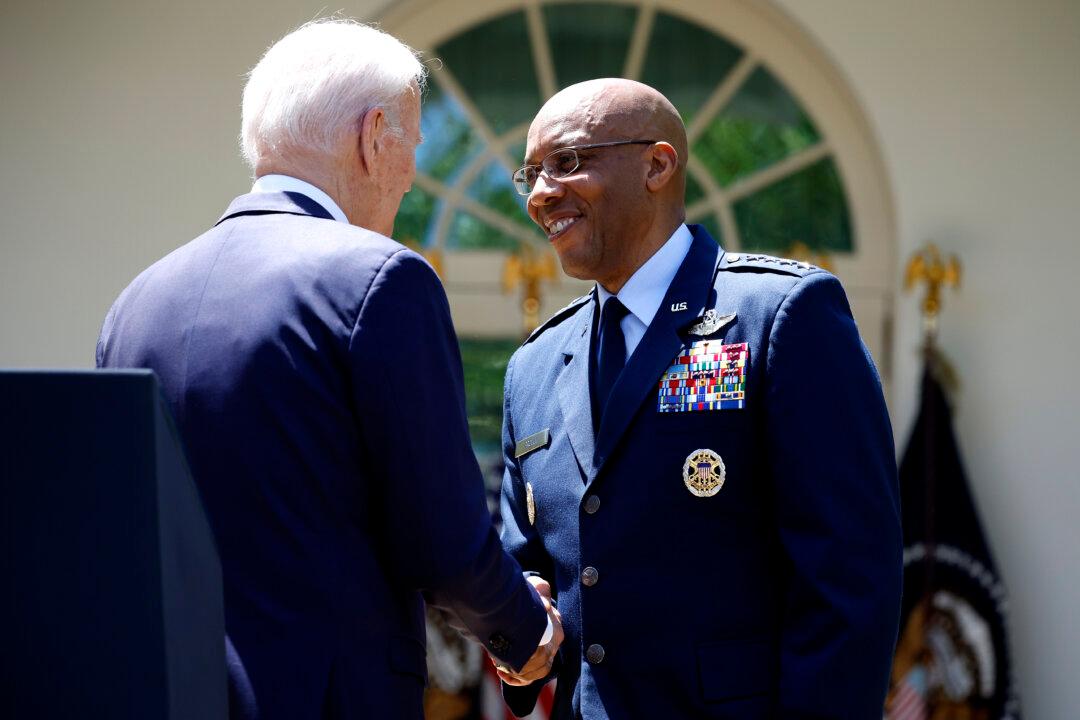President Joe Biden’s nominee to lead the United States armed services co-authored an August 2022 memo that stipulated preferred racial quotas for Air Force recruiting efforts—spurring criticism from several Republican senators during a July 11 confirmation hearing.
Also touched on at the meeting were military challenges posed by China and Russia—among others—but festered on conservative criticism of Pentagon “woke” diversity, equity, and inclusion (DEI) policies.





